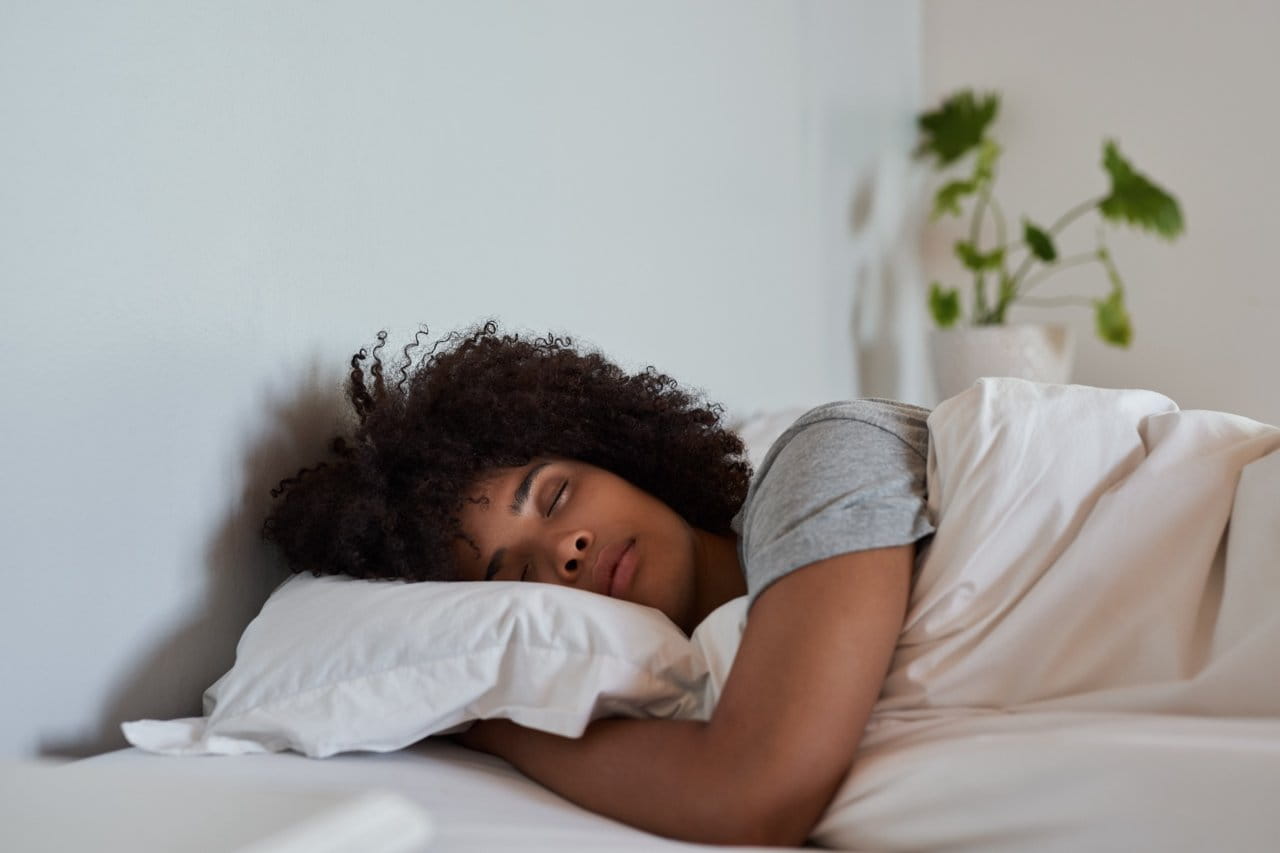Sleep and Hormones: Understanding the Relationship

A good night’s sleep is essential for your overall health and well-being. Sleep is closely tied to many important processes in the body, including hormone production and regulation. When you don’t sleep well, hormone levels can be affected, and when hormones are imbalanced, sleep can also suffer.
Understanding this two-way relationship is the first step toward making meaningful changes. By recognizing how sleep and hormones influence one another, you can take practical steps to improve both.
This article answers the question, “Can hormones affect sleep?” and vice versa. It explains the role of sleep in hormone production, highlights which hormones affect sleep, and offers tips to help you rest better.
Role of Sleep in Hormone Production
There’s a strong connection between the circadian rhythm and hormone production. Your body’s internal clock helps regulate the release of various hormones throughout the day and night.
During sleep, your body produces and regulates many hormones that affect growth, repair, appetite control, stress management, and overall balance. When your sleep is disrupted, this delicate system is also disrupted.
Growth hormone, for example, is released primarily during deep sleep, while cortisol naturally decreases at night to allow the body to rest and recover. Sleep also regulates appetite hormones like leptin and ghrelin, which help control hunger and fullness.
Without enough rest, these hormones can become imbalanced, leading to increased cravings, stress, and fatigue. Over time, poor sleep may contribute to larger health concerns tied to hormone imbalance.
Which Hormones Affect Sleep
Several hormones influence the quality and duration of your sleep. Here are some of the key players and their effects on rest:
Cortisol
Known as the "stress hormone," cortisol follows a daily rhythm. Levels are usually lowest at night and rise toward morning to help you wake up.
When cortisol stays elevated due to stress or lack of sleep, it may interfere with your ability to fall asleep or stay asleep.
Melatonin
Melatonin is produced in response to darkness and plays a vital role in regulating the sleep-wake cycle. It signals to your body that it’s time to rest.
Light suppresses melatonin production, which is why creating a dark environment is important for sleep. While supplements are available, you should talk with a healthcare provider before using them.
Insulin
Insulin regulates blood sugar levels. Sleep and insulin sensitivity are closely linked—when you don’t get enough sleep, cells may become less responsive to insulin.
This condition, called insulin resistance, can increase blood sugar levels and raise the risk of chronic conditions if left unmanaged.
Progesterone and Estrogen
For women, fluctuating hormone levels during the menstrual cycle, pregnancy, and menopause can significantly impact sleep.
Low progesterone, which can occur before menstruation or during menopause, is linked with difficulty sleeping. Estrogen decline during menopause may contribute to hot flashes, night sweats, and other disturbances that make rest more difficult.
Serotonin and Oxytocin
Serotonin helps regulate mood, appetite, and sleep. It also serves as a precursor to melatonin, meaning healthy serotonin levels are important for quality sleep.
Oxytocin, sometimes called the "love hormone," can have a calming effect. It helps reduce stress and may make it easier to relax and fall asleep.
Leptin and Ghrelin
These two hormones control appetite. Leptin, produced by fat cells, signals fullness, while ghrelin, produced in the stomach, stimulates hunger.
Without adequate sleep, leptin decreases and ghrelin increases, which may lead to overeating and weight gain.
Adenosine
Adenosine is a neurotransmitter that builds up in your brain during waking hours, creating “sleep pressure.” The longer you are awake, the stronger the drive to sleep.
Caffeine works by blocking adenosine receptors, which is why it can help you feel more alert.
Growth Hormone
Growth hormone supports growth, repair, and tissue recovery. It is released primarily during deep sleep.
Poor sleep may reduce growth hormone release, which is especially important for children and adolescents who are still developing.
Can Lack of Sleep Cause Hormone Imbalance?
Yes, insufficient sleep can disrupt hormone production and regulation. Sleep is a critical time for the body to balance cortisol, insulin, melatonin, and appetite-related hormones.
When this process is interrupted, you may experience increased stress, blood sugar imbalances, greater hunger, and reduced energy. Over time, chronic sleep deprivation may contribute to more serious health issues tied to hormones.
Can Too Much Sleep Cause Hormone Imbalance?
Although less common than sleep deprivation, oversleeping may also affect the body’s rhythms. Some research suggests that regularly sleeping more than nine hours a night may be linked to higher risks of certain health concerns.
Excessive sleep can also affect cortisol regulation and may contribute to feelings of fatigue rather than restfulness. The key is balance—both too little and too much sleep may disrupt the body’s natural hormonal patterns.
Tips for Getting Sleep to Regulate Your Hormones
Simple “sleep hygiene” practices can support hormone balance and improve rest:
- Stick to a regular sleep schedule, even on weekends.
- Create a calming bedtime routine.
- Keep your bedroom cool, dark, and quiet.
- Limit caffeine and alcohol before bed.
- Eat a balanced diet and avoid heavy, processed foods at night.
- Stay physically active but avoid intense exercise close to bedtime.
When to Talk to Your Doctor
If you consistently have trouble sleeping, consider speaking with your healthcare provider. They can help identify whether hormones or other conditions may be contributing to the problem.
You should also reach out if you experience symptoms of a hormonal imbalance, such as fatigue, unexplained weight changes, or mood disturbances.
A healthcare provider can evaluate your concerns, order tests if needed, and recommend strategies or treatments to help improve both your sleep and hormonal health.
If you don’t have a provider, please call 1.866.202.0420
or you can find a Baptist Health provider in our online provider directory.
Next Steps and Helpful Resources
Learn More About Sleep Care at Baptist Health
Women and Sleep
How Do Diet Trends Affect Hormones?
What is an Endocrinologist?



